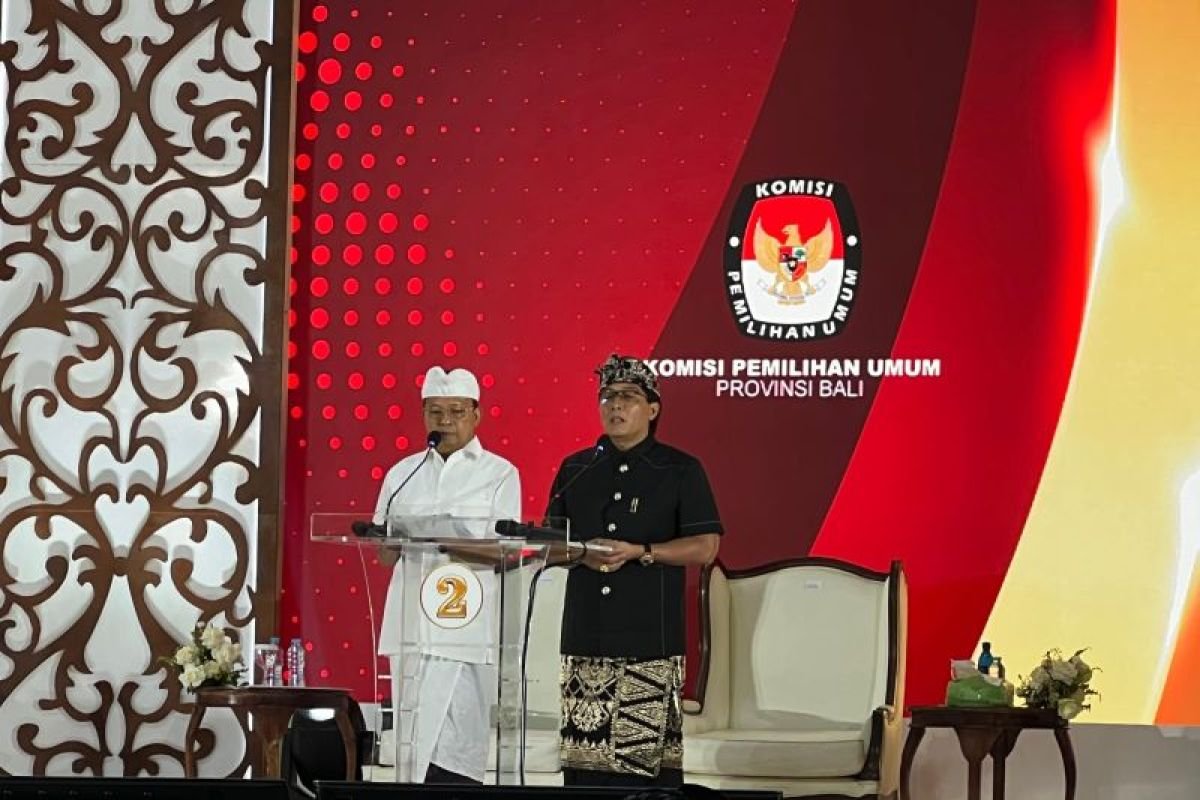Two pairs of candidates for governor and deputy governor are competing in the 2024 Bali Regional Head Election.
The first one, I Made Muliawan Arya and Putu I Agus Suradnyana (Mulia-PAS). They received support from eight political parties, namely PAN, PSI, PKN, Demokrat, NasDem, PKS, Golkar, and Gerindra.
The second pair, I Wayan Koster-I Nyoman Giri Prasta (Koster-Giri) received support from the Ummat Party, PDI-Perjuangan (PDI-P), Perindo, Hanura, Gelora Indonesia Party, PKB, Labor Party, and the United Nations.
According to PDIP’s internal quick count, Koster claimed victory with 61 percent of the vote, while Mulia-PAS got 38.56 percent. Koster explained that the calculation was carried out based on data from 6,092 polling stations or around 89.65 percent of the total polling stations in Bali.
In response to this, pair no 1 of Bali governor candidates, Muliawan Arya a.k.a De Gadjah congratulated Koster-Giri on his victory in the regional head election or Bali Regional Election.
“Of course I would like to thank my good friend Made Muliawan Arya, indeed we have been good friends for a long time,” said Koster.
Koster confirmed to work with De Gadjah for Bali
De Gadjah said that he fully accepted the results of the people’s choice. He also guaranteed that after the Bali Regional Election ended, there would be no friction at the support level.
“We guarantee that there will be no friction in social media or on land, we guarantee that, and as we promised, the struggle is a struggle, which means that indeed the will of the people is the mandate of the people and nature does choose him,” he said.
Koster also invited De Gadjah and Putu Agus Suradnyana (PAS) to synergize in building Bali. According to him, there are a number of positive things put forward by the Mulia-PAS duo.
Visions and Missions of Koster-Giri
Koster-Giri carries the vision of “Nangun Sat Kerthi Loka Bali” with a planned development approach to maintain a balance between nature, people, and culture.
This concept is based on the local philosophy of Sad Kerthi which focuses on the purification of six main elements: the soul (atman), the sea, water, plants, humans, and the universe.
This vision is relevant to current challenges, especially related to the environmental crisis and the threat of globalization facing Bali, with an emphasis on ecological sustainability amid growing urbanization and modernization.
Their mission focuses on cultural preservation, environmental sustainability, and equitable development based on local values.
They focus on strengthening customary villages, environmental management according to Sad Kerthi principles, and equitable infrastructure development between regions.
This mission reflects a holistic approach that combines spirituality, ecology, and socio-culture, as well as being a form of resistance to the impacts of globalization.
In the field of tourism, one of the planned work programs is to improve the standards of tourism services as a whole, take strict action against tourists who do not respect Balinese culture or commit criminal acts that damage the image of tourism.
They also plan to develop and organize tourist destinations, such as tourism routes in the Jalur-Lurus-Budugul-Danau Beratan-Pancasari-Wanagiri area, as well as other areas such as Denpasar-Gilimanuk, Kintamani, Jati Luwih, and Lovina.
In the infrastructure sector, they plan to build the Jagat Kerthi Bali Toll Road from Gilimanuk-Mengwi, as well as the construction of a train or Light Rail Transit (LRT) that connects I Gusti Ngurah Rai International Airport, Kuta parking center, and Canggu. In addition, they will also conduct a feasibility study to build a train around Bali.
Sources: Kompas, CNN-Indonesia
Image: via AntaraNews/Ni Putu Putri Muliantari

